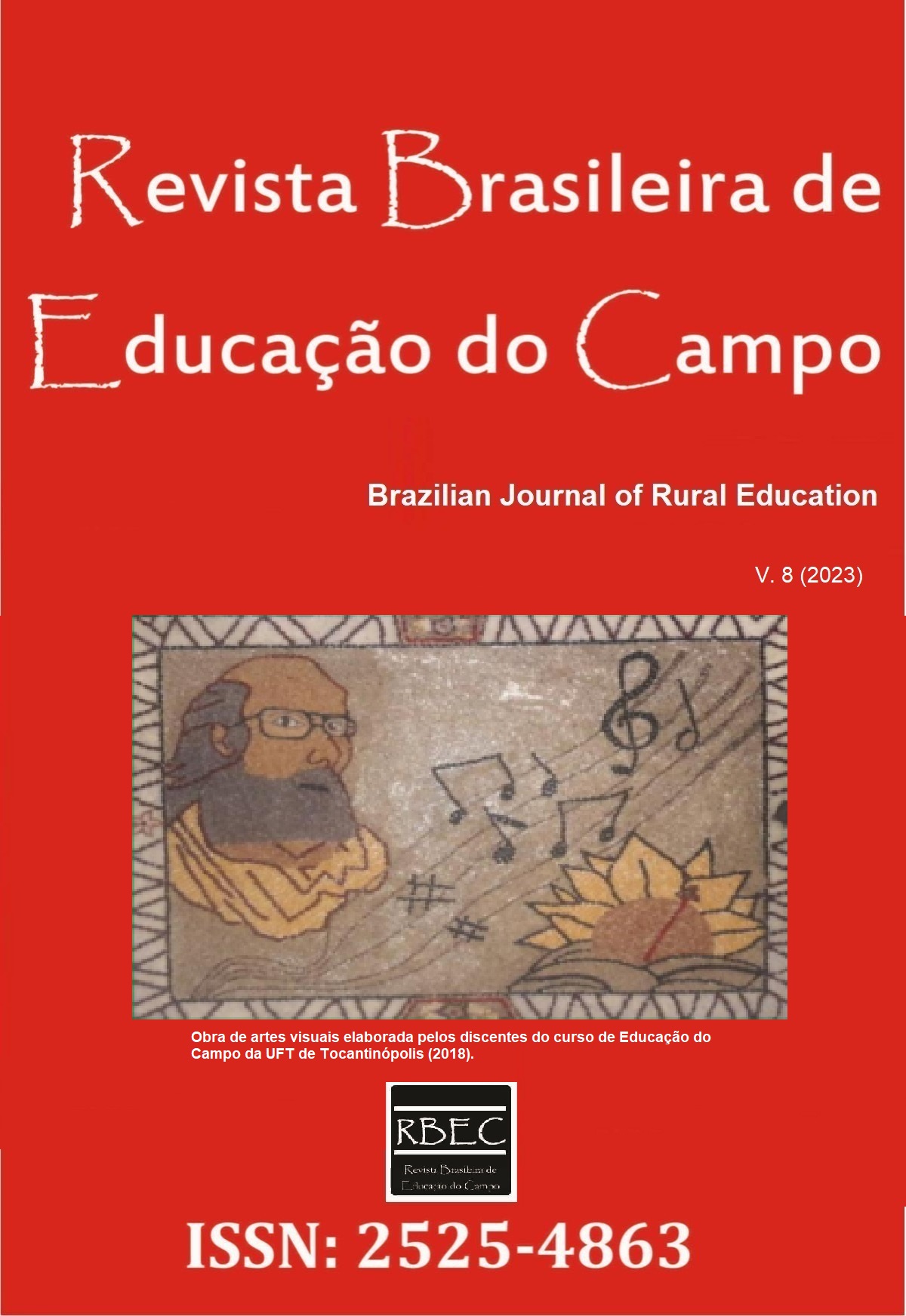Resenha: Langer, S. (2020). A revolução de Anita. São Paulo: Editora Expressão Popular.
DOI:
https://doi.org/10.20873/uft.rbec.e15127Schlagworte:
Revolução cubana, Alfabetização, CampesinatoAbstract
O relato ficcional de “A revolução de Anita” aborda a campanha de alfabetização promovida pelo governo cubano após o triunfo da revolução, que alfabetizou mais de 700 mil pessoas, sendo a maioria formada por camponeses pobres. A personagem principal é Anita, que conjuntamente com milhares de brigadistas, desafiam-se no trabalho educativo por todo território cubano a fim de erradicar o analfabetismo da ilha. São estruturados capítulos que narram as reflexões da personagem sobre as desigualdades sociais de Cuba, os valores reacionários e a violência da contrarrevolução. A família Pérez, após o processo de alfabetização, consegue construir novas perspectivas de vida e de futuro. Mesmo sendo uma obra de ficção, os elementos da realidade utilizados pela autora após a vivência em Cuba mostram a possibilidade da mudança social a partir do trabalho de alfabetização e sua centralidade na construção da revolução.
Downloads
Literaturhinweise
Niero, L. P. (2023). Resenha: Langer, S. (2020). A revolução de Anita. São Paulo: Editora Expressão Popular. Rev. Bras. Educ. Camp., 8, e15127. http://dx.doi.org/10.20873/uft.rbec.e15127
Veröffentlicht
Zitationsvorschlag
Ausgabe
Rubrik
Lizenz
Copyright (c) 2023 Leonardo Paes Niero

Dieses Werk steht unter der Lizenz Creative Commons Namensnennung 4.0 International.
Creative Commons Attribution License
Creative Commons Attribution License
Proposal for Copyright Notice Creative Commons
1. Policy Proposal to Open Access Journals
Authors who publish with this journal agree to the following terms:
A. Authors retain copyright and grant the journal right of first publication with the work simultaneously licensed under the Creative Commons Attribution License that allows sharing the work with recognition of its initial publication in this journal.
B. Authors are able to take on additional contracts separately, non-exclusive distribution of the version of the paper published in this journal (ex .: publish in institutional repository or as a book), with an acknowledgment of its initial publication in this journal.
C. Authors are permitted and encouraged to post their work online (eg .: in institutional repositories or on their website) at any point before or during the editorial process, as it can lead to productive exchanges, as well as increase the impact and the citation of published work (See the Effect of Open Access).














